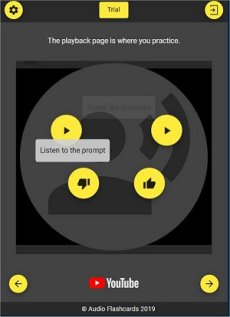|

Writing business e-mails in German:
14 greetings and salutations and their proper use
Friendly or firm? Casual or formal?
Quite frequently, non-native speakers of German unintentionally use inappropriate or impolite greetings and salutations at the start and/or the closing of their emails. Since many of these emails are requests for assistance or more information, these can be costly errors. However, they can be easily avoided once the basics of German written salutations are understood.
Here are a few tips on how salutations should be worded depending on the relationship between the recipient and the person writing the email.

At the beginning of an e-mail
| Salutation |
Relation to the addressee |
Sehr geehrter Herr [ Nachname ],
Sehr geehrte Frau [ Nachname ], |
formal, reserved |
Lieber Herr [ Nachname ],
Liebe Frau [ Nachname ], |
less formal,
suggeriert acquaintance |
Lieber [ Vorname ],
Liebe [ Vorname ], |
friends, informel
personal acquaintance |
| Hallo, |
stereotyped, unpersonal |
At the end of an e-mail
| Salutation |
Relation to the addressee |
| Mit freundlichen Grüßen |
stereotyped, friendly, unpersonal, reserved |
| Freundliche Grüße |
less stereotyped, less reserved |
| Beste Grüße |
formal, friendly, open |
| Herzliche Grüße |
less formal, personal acquaintance or suggested this |
| Herzlichst |
less formal, personal acquaintance or suggested this |
| Viele Grüße |
friendly, informel, personal acquaintance or suggested this |
| Sommerliche Grüße |
friendly, informel, with seasonal reference |
| Viele Grüße nach Hamburg |
friendly, informel, with regional reference |
| Liebe Grüße |
personal acquaintance, between friends |
| Ciao |
between friends, with reference to vacations and leisure time |
Keep in mind that the decision as to which of the above is appropriate for an e-mail depends on the status of the relationship between the addressed and the addressee. For example, if you are not on a first name basis with someone, you would use those greetings labeled as "standard, impersonal, and reserved".
Resist the urge to use informal or personal greetings in an attempt to create a closer relationship than the one that actually exists. This could be interpreted as disrespectful and make a negative impression on the recipient.
This article is also part of a monthly newsletter of Learn-German-Online.net.
Our latest news always on Facebook.com/sprachinstitut.treffpunkt.online
Keywords: Salutations in German, correct salutation, salutation, form of salutation, salutation German
|
ORDER NOW

as paperback or ebook!
Direct book order >>>
|











